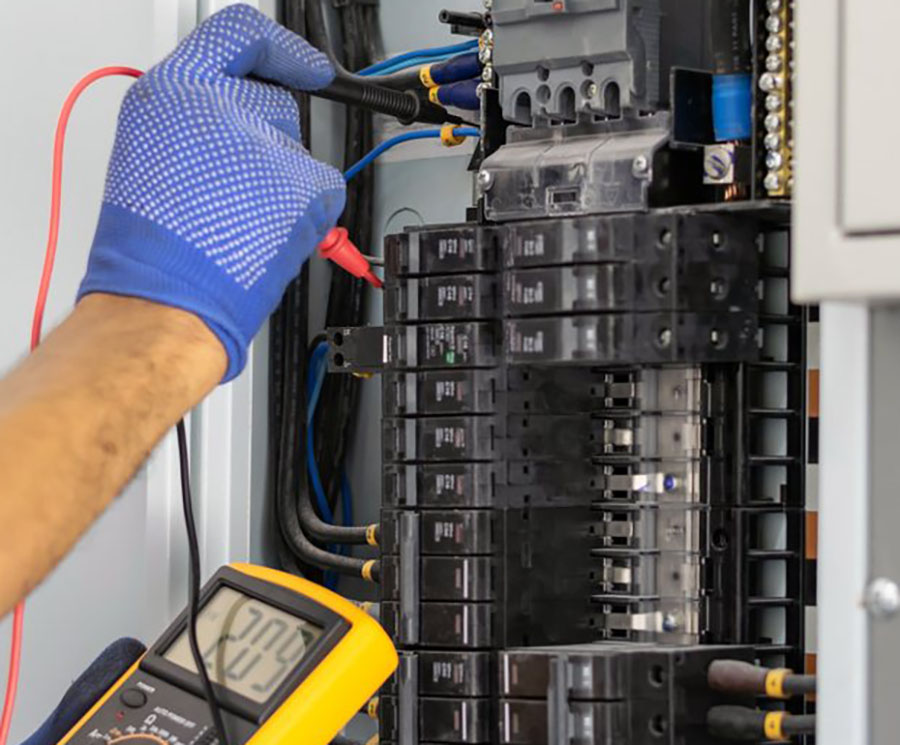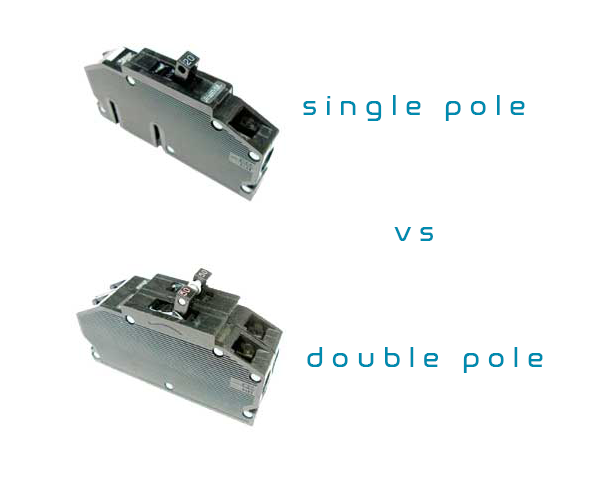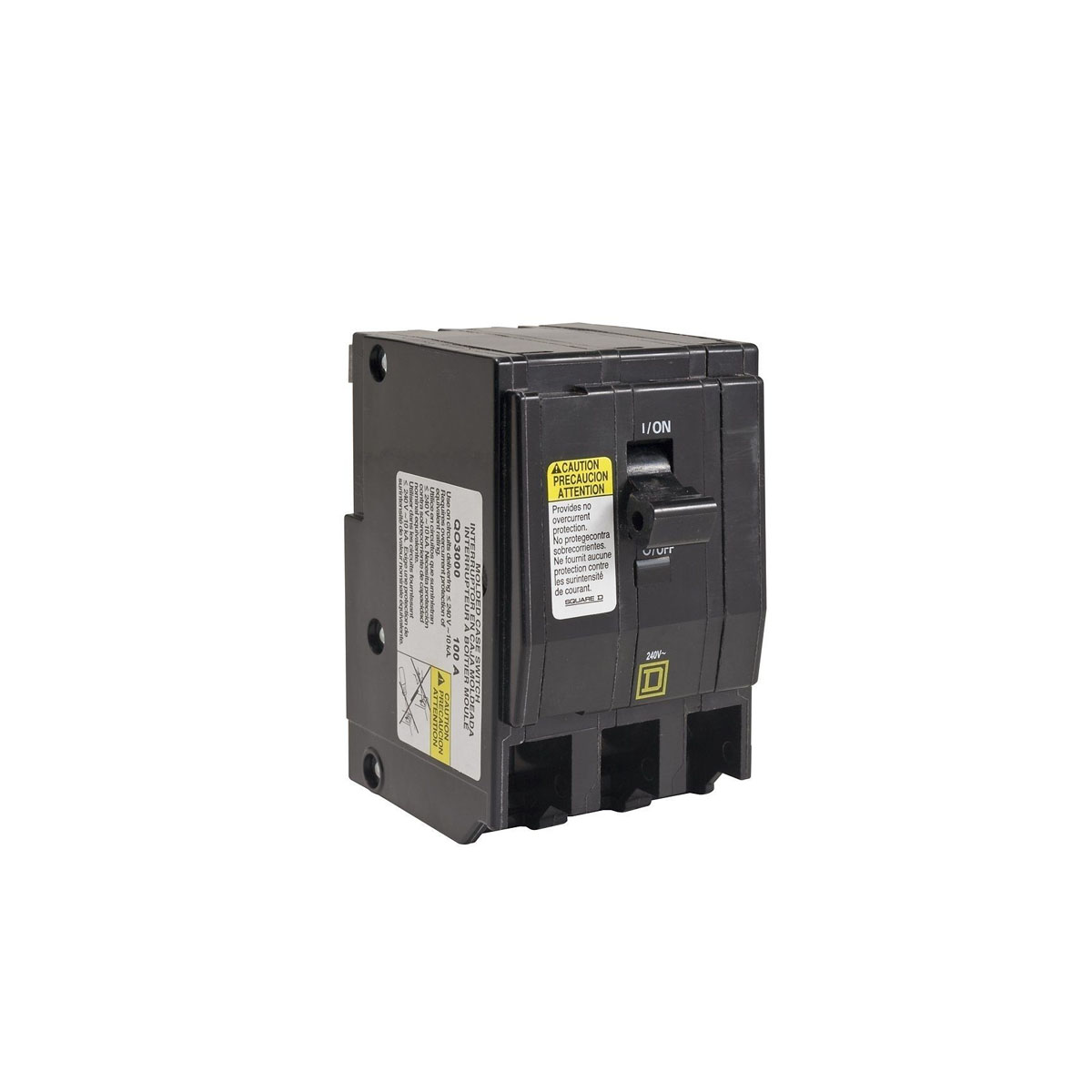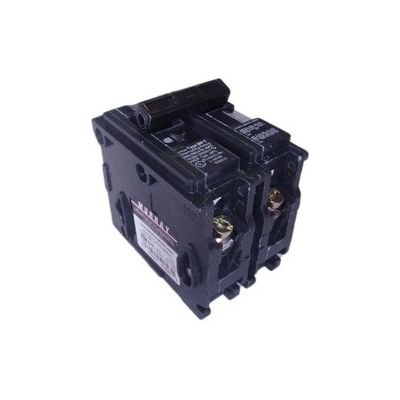How Often Do Circuit Breakers Go Bad?
Circuit breakers have a typical lifespan of 30 to 40 years.
However, they can last longer or shorter, depending on their quality and electrical events in your building. Like all electrical and mechanical devices, they wear out over time. It’s critical to know when your circuit breakers are going bad and when to replace them.
This guide covers how long breakers last, all the signs they’re going bad, and when to replace them. Read on to learn more.
Circuit Breaker Lifespan
The average lifespan for a circuit breaker is 30 to 40 years.
However, this number can go up or down based on various factors. For example, if you have a higher-quality breaker, it will likely last longer than a cheap breaker. Also, if your circuit breakers don't experience many electrical events, like tripping, overloads, or overcurrents, they will last longer.
Conversely, if you have a lower-quality breaker or experience many electrical events, your breakers will not last as long. And if you have a defective breaker, it may only last weeks or months before it goes bad.
Signs Your Circuit Breaker is Going Bad
Several signs indicate that your circuit breaker is going bad and needs to be replaced. Here are the most common symptoms:
Tripping for No Reason
If your circuit breaker trips more than once a month, it's likely going down.
Breakers trip when there's too much current flowing through them. This can be caused by several things, including a bad breaker, an overloaded circuit, or faulty wiring.
If you have an old breaker, it may not be able to handle the amount of current flowing through it. In this case, you'll need to replace your breaker with a new one that can handle the current.
If you have an overloaded circuit, you'll need to redistribute the load by adding another circuit or removing some devices from the circuit. And if you have faulty wiring, you'll need to have an electrician fix it.
Age
As we noted earlier, circuit breakers typically last 30 to 40 years. So if your breaker is over 30 years old, it's likely going bad and needs to be replaced.
You can check the manufacturer's label if you're unsure how old your breaker is. The label will have the date of manufacture and other information about the breaker.
If there's no label, you can try to find the serial number on the breaker. Once you have the serial number, you can contact the manufacturer, and they may be able to tell you when the breaker was made.
Visual Signs
There are also several visual signs that your circuit breaker is going bad and needs to be replaced. These include:
- Rust on the breaker or in the breaker panel
- Loose connections
- Cracked or broken housing
- Melted insulation
If you see any of these signs, it's time to replace your breaker.
Flickering Lights
If your lights are often flickering, it could be a sign that your circuit breaker is going bad. A loose connection in the panel usually causes this, or your breaker is going bad.
If you see this happening, you'll need to have an electrician check your breaker panel, tighten any loose connections, and replace the failing breaker if necessary.
Bulbs Burning Quickly
If the bulbs in your home are burning out quickly, it could be a sign that you have a bad circuit breaker. When breakers fail, they can cause power surges which can damage devices and shorten the lifespan of light bulbs.
If your light bulbs are burning out quickly, check your circuit breaker panel for any signs of damage. And if you see any damage, replace the breaker.
Burnt Smell From Panel
If you smell a burning or burnt odor from your circuit breaker panel, it's a sign that your breaker is going bad and needs to be replaced.
This usually happens when the breaker gets hot and melts the insulation around the wires. If you see this happening, turn off the power to your panel and call your electrician to replace the breaker immediately.
If you're not comfortable working with electricity, don't attempt to replace the breaker yourself. Instead, call a licensed electrician to work on your electrical system.
Breaker Panel is Hot
If your circuit breaker panel feels hot to the touch, it's a sign that a breaker is failing and needs to be replaced.
Failing breakers can put off high levels of heat, either because they’re allowing an overload or overcurrent, or they’re creating a loose connection. If you feel heat, identify the source, and don’t hesitate to replace the breaker.
Melted Wires and Scorching
If you see any melted wires or scorched insulation in your circuit breaker panel, it's a sign that your breaker is going bad and needs to be replaced.
This usually happens when the breaker gets hot and melts the insulation around the wires. In this case, you should cut the power and have your licensed electrician replace the breaker as soon as possible.
Poor Performance of Electronics
If you notice that your electronics are not performing as well as they used to, it could be a sign that your circuit breaker is going bad.
When breakers fail, they can cause power surges which can damage devices and shorten the lifespan of your electrical equipment. If you see this happening, turn off the power to your panel and call your electrician to replace the breaker.
No Power
If you have no power to a particular circuit, this is an obvious sign that your breaker has failed and needs to be replaced.
In this case, you will need to replace the breaker to supply power to your circuit.
When to Replace Your Circuit Breakers
If you notice any of the issues we noted above, you should replace the circuit breaker. Or, at least, have your licensed electrician inspect the breaker. Sometimes, the problem lies elsewhere (bad wiring, failing equipment plugged into the circuit, etc.). And even though the average lifespan of a circuit breaker is 30-40 years, you don't have to wait that long to check or replace a circuit breaker.
If you need a replacement breaker, Bay Power has thousands of models in stock. Check out our wide selection today, or contact us for help finding a replacement.




